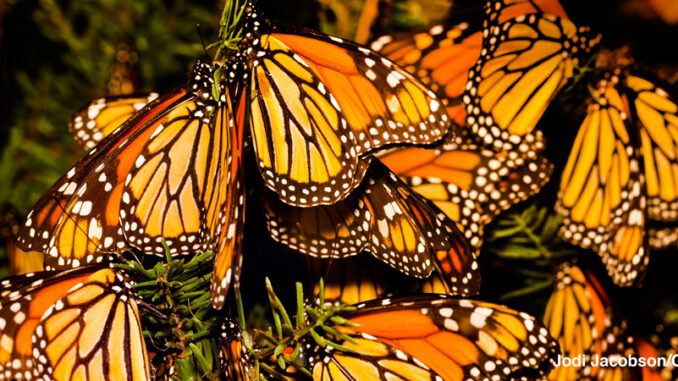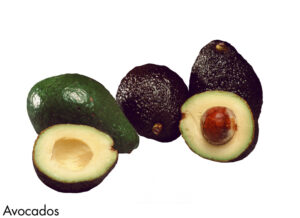
Trump Settles Lawsuits
Last Friday, President-elect Donald Trump agreed to pay $25 million to settle three civil fraud lawsuits filed against himself and against Trump University, his now-defunct real estate training program. The settlement came ten days before jury selection was set to begin and marks a reversal for Trump, who has previously claimed that he never settles cases.
The lawsuits were based on complaints from several former Trump University customers, who claimed that the businessman made false promises which the program did not deliver, despite its high price tag. Students complained of fraudulent claims, unqualified instructors, and a lack of substantive real estate investment information while enrolled at the “university.” During depositions, Mr. Trump admitted that he played on students’ fantasies, and that he had not hand-picked instructors as promised.
Under the terms of the settlement, about 7,000 former students will be eligible for refunds, some of them for as much as the full tuition price of $35,000. It also includes a $1 million penalty paid to the state of New York for violating the state’s education laws by calling the program a “university” despite offering no traditional education or degrees. However, Trump continues to deny the charges, and the terms of the settlement do not require him to personally admit to any wrongdoing, or to admit that his customers were cheated.
After the settlement, a spokesperson for the president-elect issued a statement explaining that Mr. Trump preferred to settle the case so that he could devote his full attention to his upcoming presidency.
What Do You Think? Imagine that the case against Trump University did not settle after all, and that you are a potential juror in the case against Trump University. Based on what you have heard and seen in the news, would you find the president-elect innocent or guilty of the charges brought against him? Provide at least three reasons to support your opinion. In your point of view, was Trump right to settle the case? Why or why not?
How Avocadoes Threaten Butterfly Migration
Every winter, monarch butterflies from all over North America migrate to Aputzio de Juarez, Mexico, where they rest in native fir trees. Now, however, that famous migration is facing a dangerous and growing threat: avocadoes.

The Mexican state of Michoacan, which houses the 135,000-acre Monarch Butterfly Biosphere Reserve, is also the producer of 80 percentof the avocadoes shipped to the United States every year. As the U.S. appetite for the fruit increases–Americans are eating twice as much avocado as they did just eight years ago, about seven pounds per capita, per year–Mexican farmers are turning Michoacan’s forests into avocado orchards to meet the growing demand. About 110,000 acres of forest in central Michoacan were turned into orchards between 1974 and 2011, and an estimated 65,000 more acres have been deforested since 2011.
While the Reserve itself is protected, the area immediately surrounding it is threatened. This is a problem, because the trees in the outer ring of the Reserve help cool the air and allow the native fir trees inside the Reserve to thrive. If the fir trees in the Reserve are damaged, it could have devastating consequences for the already-declining monarch.
This deforestation isn’t just bad for the butterflies. A mature avocado orchard uses almost twice as much water as a native forest. Native pine and oak trees also help filter water through the earth into springs, while avocado has shallow roots and absorbs much more water. Other environmental costs include the huge amounts of agricultural chemicals used on the crops, and the amount of wood needed to pack and ship the fruit.
Unfortunately, although governmental and environmental organizations are working to slow the damage, Mexican farmers are not likely to stop growing avocado anytime soon. Avocadoes are more profitable than nearly any other crop, and Mexico has just signed an agreement with China (where imports of Mexican avocadoes have grown by roughly 200 percent each year) allowing for lower tariffs and increased imports of the fruit, thus ensuring that the price of avocadoes will continue to rise for years to come.
What Do You Think? What can Americans do to help preserve the monarch butterflies’ winter home? Which is more important, in your opinion: the livelihood of Mexican avocado farmers, who depend on the sale of the fruit for their income, or the preservation of Michoacan’s forests? Be sure to give reasons to back up your opinion.
Oldest Woman in Space
This weekend, NASA astronaut Peggy Whitson arrived at the International Space Station for the second time in her career, becoming the oldest woman in space.
At 56 years old, Whitson has a long and impressive history with NASA. Born on February 9, 1960 in Iowa, she earned a degree in biochemistry and went to space for the first time in 2002, when she completed a six-month tour of duty aboard the International Space Station (ISS). In 2007, she became the first woman to command the ISS. She has also logged nearly 40 hours of spacewalking during six spacewalks: a record until 2012. With this latest mission, during which she will turn 57, she will become the first woman to command the ISS twice. Whitson has already spent 377 days in space. After this six-month mission, she will have spent more time in space than any other U.S. astronaut (the current record is held by Jeffrey Williams at 534 days). Her past missions include Soyuz TMA-11, Expedition 5, Expedition 16, STS-113, and STS-111.
When asked in pre-flight interviews about her age, Whitson commented that the process of going into space actually gets easier with age and experience. She explained that she now knows what to expect, and how to prioritize. Whitson and fellow astronauts Thomas Pesquet and Oleg Novitskiy will remain on the ISS until May 2017, where they will carry out a range of scientific investigations.
Dig Deeper Use Internet resources to research the number of male and female NASA astronauts today. Why do you think this gender gap still exists? In your opinion, what can be done to increase the number of U.S. female astronauts in space?
Genetically-Altered Mosquitoes Fight Zika Virus
Last month, btw brought you coverage of the Zika outbreak in Florida’s Miami-Dade County. As the virus continues to spread, Florida residents are being asked to consider a new option to control it: genetically modified mosquitoes.
On Election Day, voters in Monroe County, Florida, approved a referendum that would allow a trial release of these genetically-altered mosquitoes into the Florida Keys. Here’s how the experiment works: the altered male mosquitoes, which will mate with wild female mosquitoes, carry a gene that causes their offspring to die before they reach adulthood. Because the Zika virus is spread by mosquitoes, limiting the mosquito population should be an effective way to control it. Oxitec, the British biotechnology company which has developed the altered mosquitoes, has released similar mosquitoes in Brazil, Panama, Malaysia, and the Cayman Islands, and claims a 90 percent or better rate of reduction in mosquito populations in these areas. The company also points out that male mosquitoes do not bite, and that reducing mosquito populations will help fight other mosquito-spread illnesses, such as dengue, yellow fever, and chikungunya. (The Florida Keys, which have not yet experienced a Zika outbreak, have had serious problems with dengue in the past.)
Though Monroe County voters approved the trial, the people of Key Haven, where the mosquito release would take place, did not. Many Key Haven residents have expressed concerns about the long-term environmental impact of the experiment, and about how much money Oxitec will potentially make from the project. They also point out that the measure seems unnecessary, since there is not yet any evidence of Zika in the Keys. Therefore, Oxitec will need to apply to the U.S. Food and Drug Administration for approval, and identify a new location for the trial elsewhere in Monroe County. If the FDA approves it, the trial could begin as soon as January in the Keys, and if it is successful, in Miami a year later.
